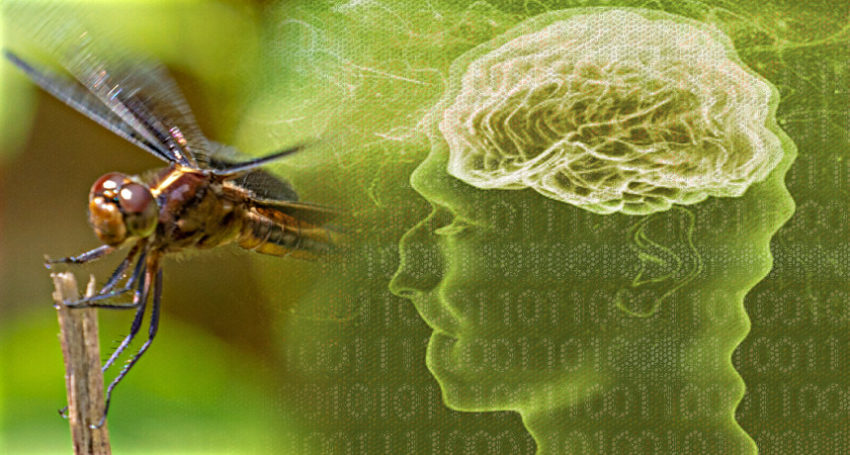While watching a dragonfly fly once, I wondered whether the little creature’s little brain had enough computational power to execute the complicated maneuvers that I saw: flying, of course; even harder, landing; harder in a different way, returning time and again to the same spot; mating while flying seems particularly tricky; and eating, for that matter; and more.
The simplistic answer is that, yes, of course the dragonfly’s brain has enough computational power to do these things, because otherwise the dragonfly couldn’t do them. But we know from other realms that that reasoning is flawed.
I have a cellphone that understands my voice (often) even though the device doesn’t have enough computational power to do so. It achieves this trick by sending information wirelessly to a much more powerful computer — “the cloud” — for the heavy computational lifting.
So I wonder: Is there a cosmic computational cloud — something to which our brains connect, and to which the brains of other creatures connect? And how would we know?
Two ways of identifying this cosmic computational cloud come to mind: (1) we can observe it directly; (2) we can demonstrate its necessity by observing phenomena that would be impossible without it.
So far (1) hasn’t happened. We haven’t observed a cosmic computational cloud. (Though on the other hand, no one has been looking for it.)
And (2) is more nuanced.
If we can demonstrate that the dragonfly doesn’t have enough computational power to do what it does — or if any creature does anything that it doesn’t have the computational power for — that would be pretty convincing evidence. Even this approach is hard, because computational power depends on hardware as much as software. The dragonfly’s wing structure and other bodily apparatus might have evolved in such a way that even a lowly dragonfly could use them to fly. But, though hard, this line of inquiry isn’t impossible. Equally, once again no one has been looking into it.
A variation on (2) may be easier.
A cosmic computational cloud may offer a solution to a conundrum I first encountered in the engrossing book The Mind’s I by Douglas Hofstadter and Daniel Dennett: A neuron performs a mechanistic function, taking one or more inputs and converting them in some (perhaps complex) mechanistic way into an output. A machine could do this job. Certainly replacing one neuron of the 100 billion or so in a human’s brain would have no effect on the brain, and, in particular, on consciousness. What about replacing two neurons with machines? What about replacing all of them?
One of two conclusions seems inevitable: Either a machine can be conscious, or consciousness stems from more than the mechanisms of the body — that is, consciousness comes from outside the body.
I’m not willing to rule out the former conclusion (though I am terrified by it, because, if it’s right, turning off my computer might be murder). But for now I’m more interested in the latter.
Perhaps there’s a cosmic computational cloud, and perhaps it helps explain what it means to be alive.
